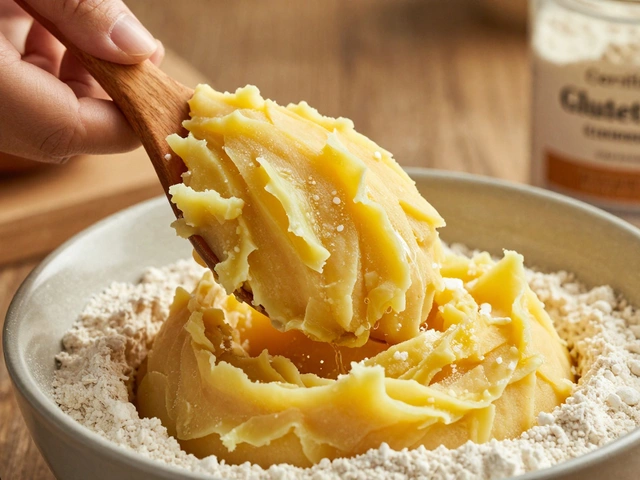Celiac Safe Eggs: Quick Guide for Gluten‑Free Baking
If you have celiac disease, you probably wonder if eggs are safe. The short answer: plain eggs are naturally gluten‑free. But the details matter when you buy packaged products or use substitutes. This guide shows you how to keep eggs safe, what to look for on labels, and which egg‑free options work without a hitch.
Choosing Real Eggs That Are Gluten‑Free
Fresh chicken eggs contain no gluten. The shell, white, and yolk are all safe as long as they haven’t been mixed with anything that contains wheat, barley, or rye. When you buy cartons, check that the label doesn’t list any added ingredients like seasoning or flavoring. If the package says “no additives” or “plain,” you’re good to go. Some brands even print a gluten‑free symbol for extra peace of mind.
Even though the egg itself is safe, the facility where it’s processed can matter. Large manufacturers sometimes operate in plants that also handle wheat‑based products. If you’re very sensitive, look for eggs that are labeled “certified gluten‑free” or come from a dedicated gluten‑free facility. These eggs have been tested to ensure no cross‑contamination.
Egg Substitutes That Work for Celiac Diets
When a recipe calls for eggs and you can’t use fresh ones, there are plenty of celiac‑friendly substitutes. A simple mix of 1 tablespoon ground flaxseed plus 3 tablespoons water creates a gel that mimics one egg. The same works with chia seeds. Commercial egg replacers like Ener-G or Bob’s Red Mill are formulated to be gluten‑free, but always read the label to confirm.Other pantry staples can step in, too. Mashed banana (½ cup per egg) works well in sweet baked goods, while silken tofu (¼ cup per egg) is great for custards and dense cakes. These options add moisture and binding without bringing in gluten.
When you use a substitute, adjust the liquid in the recipe slightly. Most gluten‑free flours already absorb more moisture, so you might need a little extra milk or water to keep the batter from drying out. Taste and texture improve after a few tries, so don’t be afraid to experiment.
Handling eggs safely in a celiac kitchen is also key. Keep raw eggs separate from gluten‑containing foods, use a dedicated cutting board, and wash hands thoroughly after cracking eggs. If you bake with both gluten‑free and regular flours, store them in sealed containers to stop dust from drifting.
Storing eggs is simple: keep them in the original carton in the fridge and use them within three weeks. If you buy liquid egg products, treat them like any dairy – keep them cold and use them before the “use by” date. For long‑term storage, you can freeze cracked eggs (beat them first) in freezer‑safe bags for up to six months.
Bottom line: plain eggs are safe, but always check labels on processed products and use certified gluten‑free brands if you’re extra cautious. When you need a substitute, flaxseed, chia, or a reputable gluten‑free replacer does the trick. With these tips, you can bake, cook, and enjoy desserts without worrying about gluten slipping in.

Are All Eggs Gluten-Free? What to Know About Eggs, Gluten, and Hidden Dangers
Are eggs gluten-free? Here’s the real scoop on eggs and gluten, accidental risks, safe cooking tips, and how to keep gluten out of your breakfast.
View More




